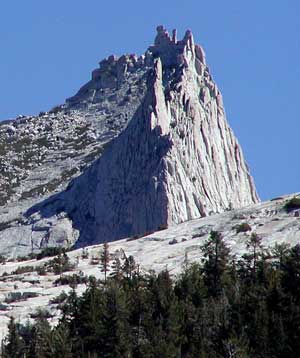On December 12, 1799, George Washington went out to inspect his plantation in Virginia. The robust 68 year old President rode his horse around in heavy snowfall for about five hours. The weather at Mt. Vernon was cold (33 degrees F), cloudy and windy. The next day, Washington complained of a sore throat, but went riding again anyway to mark some trees he wanted cut down. On December 14, he was struggling to breathe. The estate overseer gave him a medicinal mixture of molasses, vinegar, and butter. Washington almost suffocated trying to swallow the concoction. The President continued to deteriorate, and died a tranquil death later that evening. Exposure was clearly a factor. (However, it probably didn’t help that the overseer and doctors drained 5-7 pints of his blood over a period of nine or ten hours. Bloodletting was a popular remedy back then.) (Source: V.V. Vadakan, MD).
Washington was not the only one to succumb to nasty weather. After an exhausting day of mountaineering, one of my husband Doug’s climbing partners, who shall remain Nameless, fell asleep outside of his sleeping bag. When Doug awoke in the middle of the night, he saw an immobile, incoherent Nameless sitting up, his ice-coated glasses frozen to his face. To revive him, Doug and his other partner dragged him into their nearby car and cranked up the heat. While thawing out, Nameless threw up into the heating vent. (For years afterwards, car occupants were aromatically reminded of the mishap every time the heat was turned on.)
 |
It's not always sunny in California.
Photo of Cathedral Peak in Yosemite by Stan Shebs. |
The 2008 Accidents in North American Mountaineering describes an outdoor adventure with a more tragic ending. Friends Peter Noble and Scott Berry set out to summit Cathedral Peak in Yosemite. They had researched the climb thoroughly, and knew it was within their technical abilities. They also knew November was storm season, but the forecast was for sun and clouds. Before heading out, they didn’t check for a weather update. Their cellphone’s clock was wrong, so they got off to a late start. Peter was wearing lightweight pants and a fleece sweater. Scott was in a T-shirt, lightweight jacket and heavy pants. Neither had warm hats or gloves. They left their heavy raingear in the car, figuring “What could possibly happen to prevent at least one of us from coming out for help?” Later, they stashed their packs on a ledge to avoid having to carry them all day up the rock climb. They didn’t keep track of the time.
They were having fun until the storm hit. By the time things got desperate, they couldn’t get a cell phone signal, even though reception had been excellent earlier. It was pitch dark when their headlamp broke in a fall. Soaked and freezing from the wind, sleet, ice, snow and cold, hypothermia set in. Their movements slowed, coordination suffered, judgment dulled, and they became disoriented.
There was no accessible shelter and no way to make a fire. Exhausted, dehydrated and numb, they struggled to descend. Unbeknownst to them, they passed within 30 feet of their packs as they rappelled and crawled down the mountain. After they had been going nonstop for 16 hours, Peter began to hallucinate, and then rolled onto his back. Scott yelled “Peter, you have to get up or you’ll die!” That’s OK,” Peter said calmly, and then asked “Who are all these people around us?” Scott replied “They’re our friends,” now certain neither of them would survive. Peter said “Oh, it’s OK then.” They had moved a tiny bit further when Peter asked “What is that bright light over there?” As Scott turned to look, Peter collapsed onto his back, a rattle emanated from his throat, and he lay still.
Scott could not check for a pulse as he had lost feeling in his hands hours ago, and was shaking too violently to listen for breathing. Fifteen minutes of CPR proved fruitless, so Scott continued on to get help. He crawled and fell for another mile and a half, but by then it was too late. After six months, the feeling returned to Scott’s fingers and toes, the shooting pains in his hands subsided, and his short-term memory improved. But his friend is gone forever.
Both the beginner and experienced can succumb to tragedies in the outdoors, even on easy excursions. “Unlikely” events happen, like storms, lost or failed gear, and injuries. Late starts or returns, and insufficient clothing for prolonged and full exposure to nasty weather can be deadly. See next week’s article for tips on recognizing hypothermia and frostbite. |

